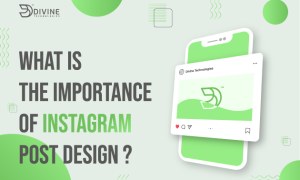Social media privacy concerns rise every day due to the large user base on these platforms and the increasing risk of cybersecurity threats. Facebook had nearly 2.96 billion monthly active users (MAUs) worldwide in the fourth quarter of 2022, while the MAUs of Instagram are estimated to reach 1.44 billion by 2025. Such a user base leads to security concerns like the reliability of data protection and privacy solutions by social media platforms.
Since users leave digital footprints every time they use a social media app, how the app protects their privacy and personal data is an issue you must address during development to avoid many legal issues after deployment. It is also why platforms like Android and Apple have their security protocols and standards that developers must meet to get their apps approved on the Google Play and Apple App store.
There are some social media data privacy laws like the Communications Decency Act (CDA), American Data Privacy and Protection Act (ADPPA), Children’s Online Privacy Protection Act (COPPA), and GDPR Compliance that aim to protect user data and privacy through legal regulations and standards. Nevertheless, when it comes to an online platform, a skilled hacker can always find a vulnerability that can compromise user data on your social media mobile application.
In January 2021, a database of 214 million social media user profiles including Instagram (obtained by SocialArks through data scraping) was leaked due to a misconfiguration. To avoid such privacy breaches, you must identify and prevent security vulnerabilities in your social media app before deployment.
What is Social Media App Privacy?
Social media app privacy is the right of users to have their personal information under protection (from cybersecurity threats) on the platform they have decided to trust and use. Personal information can be names, mobile numbers, email addresses, private chats, personal videos and photos, or payment information.
Data privacy was and still is one of the biggest social media privacy concerns. It is because there are data leaks and thefts on multiple social media platforms every now and then, even though they all guarantee reliable security measures for user data privacy and compliance with social media data privacy laws.
Therefore, you need legal rules for social networking apps to protect them from many cybersecurity threats. As the app owner or developer, you can also address these problems by being familiar with the most common security threats in a social media app.
Some vulnerabilities that can be there in social media app development can be:
- Poor Authentication
- Insecure Data Storage
- Lack of Data Encryption
- Fewer Security Updates
- Data Exposure
- No Pen Testing
Security solutions you can use to better protect your social media app are:
- Data Encryption
- Source Code Encryption
- Regular Penetration Testing
- Cloud Computing
- Minimize Sensitive Data
- Biometric Authentication
- Multi-factor Authentication
- Secure APIs
Addressing Social Media Privacy Issues during App Development: 6 Key Considerations
Every social media app development process should involve a strategy for implementing better app security and data privacy in the app.
Ambiguous Privacy Policy
The first thing you must do is create a strict, straightforward, and easy-to-understand privacy policy for your social media app. Many mobile app owners create an ambiguous privacy policy in order to protect themselves from legal issues in case of data leaks and thefts. However, it has become the primary reason why they have to face legal issues due to the ambiguous nature of their privacy policy.
The privacy policy explains the rights to privacy users have in your app. That is why you must be clear and straightforward with every work when creating a social media app privacy policy. It will help you protect user data privacy and prevent legal issues.
Data Mining
Creating a social media account is a process that provides your app information like names, email addresses, location, interests, birthdate, age, mobile numbers, and in some cases, financial information like credit card numbers.
Since every user can leave a trail whenever they access or use their social media account, their personal data is always vulnerable to data mining. While data mining is not illegal, it can be used for purposes like identity theft, which can lead to cyber crimes and legal issues for users.
Advising users to use a VPN to prevent data mining is not a convenient solution for them, but you can create legal rules for social networking apps enforced specifically in your app to make it illegal for data miners to access any data.
Doxxing
Doxxing is another social media privacy concern where individuals can leak personal information about users like names, ages, home addresses, office addresses, phone numbers, financial information and history, social security number, private videos and photos, and sensitive personal information.
Creating a strict privacy policy and regulation on your social media app is the only way to deal with such a privacy concern. It will allow users to report any individual that leaks such information without consent and help you deal with the matter before it escalates.
You may also incorporate security solutions that prevent users from sharing any personal information like addresses, phone numbers, and credit card numbers without verifying them.
Phishing
Phishing is a popular way to steal personal information by sending users a message through chats on a social media app. These messages can look like they are from the social media platform asking for personal information for verification, which users trust easily. It can lead to users providing much of their personal information to an online attacker and thief.
Informing your target users about phishing attacks regularly is a great way to prevent them. You may tell them the differences between a legitimate message and a phishing attack message.
Another thing you can do is incorporate AI-based security solutions that can differentiate a message from your or another legitimate platform from a fake or phishing message, although it may slightly increase the social media app development cost.
Malware
Downloading an infected file/program or clicking on a link are some ways malware can exploit a security vulnerability in the social media app and access private information. It can also lead to crashes or downtimes for the social media platform or the leak of its entire database.
Malware attacks can cause data leaks, identity thefts, and cybersecurity crimes. Regular penetration testing and security updates/patches are the best ways to identify vulnerabilities and prevent malware attacks in your social media app.
Learn: How To Keep Your Privacy Intact While Using Public Wi-Fi?
Botnet Attacks
Social medial botnet attacks are where a group of automated and fake accounts follow and message new accounts in order to gather private information, which is collected by single or multiple attackers. While many users today are aware of such botnet accounts, there are still users that are not.
They can fall prey to such botnet attacks, leading to private data leaks and theft. You must incorporate a security solution during development that identifies and bans botnet accounts while preventing their creation.
Conclusion
By addressing all social media privacy concerns, you can create a social media app that users can trust and rely on. Incorporating strong security solutions also helps you protect the database of your app, which can lead to the leak of sensitive information.
Such leaks can force you to deal with many legal issues, lead to decreased revenue, and prevent business growth. That is why you must take user data privacy and security seriously and implement all the necessary security solutions and protocols during development.






Leave a comment